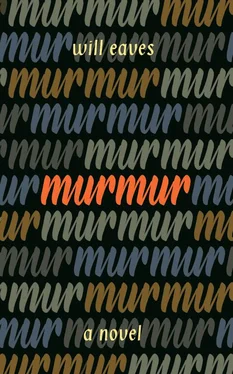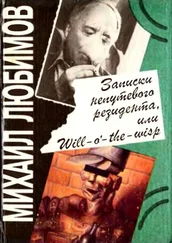But I’ve been thinking—maybe there’s a happier way of coming at this dreaminess.
So what if you feel yourself slipping and sliding! Don’t we all bundle away bits of the past? Bits of ourselves, even. I wonder if it may not be a mistake to cling on to our identity. Look, if you can bear it, at us. Look at me. Alec, we were going to be married! You proposed on a stile and made me a chess set out of baked mud that fell apart as soon as we tried playing on it at the Crown. Most of the others in Hut 8 thought we were married and we both entertained the idea for a while. Being held fast to others’ expectations has its attractions in a time of crisis, but I had to relinquish that particular view of myself. Who knows what sort of husband and wife we would have made? Good? Bad? What of it, now? The Eastern philosophers, about whom Bill is so serenely passionate, say that the ego is an illusion, fostered by other people’s opinions and points of view. There is plenty in that.
But you’re right. Something remains, something real but not necessarily physical in the common sense, and in my dull way I’d say that it is a quality of thought. A tactic. Fair play, decency, humor, subtlety. The things that (I know you will disagree with this) slip off the table of behavior but nevertheless dictate how we behave.
Is that an antinomy? Almost. Such a good word. Antinomies ought to be flowers.
The Law has had its say, but the bit of you that is unreachable, darling, will survive. Max N. tells me you cooked him dinner last week and that the other guest at your table was your probation officer. I can hear you laughing now.
You, a machine? The factories would grind to a halt.
Love, June
PS Trentham’s paper arrived from Trentham himself, in the end. I presume you gave him our address. Did you ask him to send it? Where does he come from, again? Princeton? Don’t flaunt your Alec-ness. People who can’t judge ability will judge character instead. Bill’s impression of T. is that he is rigorous but slippery-pole inclined.
*
Autumn turns the backs into cloud fields. I’m lifted from the perishing slabs into a sitting position, my head about level with fog beyond the Fellows’ trees. For one moment, I see myself severed or served on a white cloth, exsanguinating like a heretic. I’m cold beneath the cloud. My legs are sediment. “That’s it.” A voice I recognize. “ That’s it.” I’m being held.
It comes to me that I have been away or ill and I am ready to see Christopher again, whose arm around my neck implies a face waiting to show itself.
“You had another trip, Alec.” The voice is bright. A hand waving in front of me. “Alec? Trentham, from T. I saw you fall over the scraper at the gates. ‘The Scraper at the Gates’—sounds like a play. Alec?”
But everything is swimming. I can only let myself be hoisted up. Trentham is kind. I do not know him, then I do, then I do not. He smiles, willing me back. We shuffle through the poplars’ sovereign leaves, over the bridge. Ahead of us fog floods Gibbs’ arch and rowers, halved, not holding but strangely accompanied by blades, laugh at their own weird truncation. We turn into Bodley’s.
The air is bitter cold, the world real. T staircase, creaking like a ship, a hint of earth closet about the damp entrance, my door right at the top, its open oak, the set of rooms, Trentham breathing, busy with coals and tongs, paper, matches, his hairless cheeks, the raised pores on his neck (the only place he has to shave)—all of it’s real except the halt in time as I sit by the window making my inventory, which loops round and around and doesn’t seem to want to end.
“Your rooms look different in the light,” Trentham begins, then stops, colors, and hurries on. “I didn’t notice that trophy before.” Trophy . “Above your desk. Majestic beast! Your spoils?”
Antlers are growing from the wall, no head, the rest of the stag glassed over.
“Or Mrs. Packlehurst’s tiger. You know, the one she thought she shot but really it just died of fright… Alec?”
“I’m not too sure myself,” I say.
I’m like this when I’ve had a faint. I know that I went for a run, early, and tripped at the back gates, gashed my ankle, and didn’t mind the pain but saw the blood… The sight of blood drains everything of its familiarity. The rooms are mine, but shifted out of alignment. Like parallels on a Riemannian plane becoming rings on spheres that meet again . I seem to hear a voice inside my head.
Trentham, meanwhile, is chattering.
I must recall, he says. Surely I’d know if I shot something so—so beautiful. Trentham’s a pacifist—“I couldn’t even hold a gun, much less fire one”—and talkative. Eddington says he’d make a first-class wrangler if only he kept quiet. Instead, he’s just an able computer. The talkative are more alone than they realize. It is their talk that drives listeners away. The mirror underneath the antlers shows a listening room.
The fire is lit. Red-faced and self-conscious, he turns to me. “Now, don’t look down. I don’t want you to faint again.” Kneeling, he loosens my plimsolls. “Trust you to tie a frantic knot…” He pulls a large white handkerchief from his pocket and reaches for the safety pin fastening my shorts (“Sorry, but I need this.”). He works away, pulls off a blotchy sock. I look up hastily, assess the volutes in the ceiling rose. “No real damage.” The dressing’s comfortable. It is the sense of imposture that worries me, the feeling that I’ve changed; that I’m a variant, not altogether the same man who went out for a run; that Trentham isn’t Molyneaux; that it is difficult for manumitted souls to find a new body. But necessary. With no body, what is there for them to do?
“Sorry,” he says, his voice soft now, considering the done and the undone, sliding both hands along my thighs. “I think I might need this as well.”
After, he stretches out on the carpet. Arches and rolls onto his back, his hands and wrists pushing catlike at nothingness. He yawns, baring his teeth, showing the pink and yellow of a tongue coated with me. The trouser pleats, the creases on his white shirtsleeves are hewn. Only his tie, pulled down an inch and trailing on the carpet like a cinder path, seems lax. His ease at being animal blots out the deed. Function trumps memory. I hear the grate agree. The flames draw near. Somewhere inside them Salomé and cowled figures, grappling with every kind of ecstasy. A coal cracks. Bodies fall from smashed windows and footsteps scatter through the streets. Someone is pointing at a row of naked prisoners. The scene wavers, one flicker of one flame, and soars into the chimney breast. Gone, but the picture still exists, between the world and me. A glimpse of charnel seen from someone else’s point of view, perhaps.
I think of all the many different points of view that are the plural aspects of a singular phenomenon. Chomolungma and Mount Everest—the same mountain from two valleys. Convergent perspective.
Trentham is sorry, but not very, that he forced himself on me. I say I didn’t mind. It was his impression I couldn’t object—I looked half-paralyzed; I seemed numbly to want to be reduced to sheer reflex. It made him “terribly greedy.” He grins, swallows, and says:
“What is it like, Alec—to come round from a faint?”
I give the best answer I can, hasty and vague. The moment of the faint itself I can’t retrieve, whereas the waking up from it is revelatory and fresh, a sort of boundless reacquaintance with being. You were nothing and suddenly you find a form again, solid among the flagstones and the poplar trees.
For just a few moments, you don’t have to do anything. You don’t have to send messages to nerves or limbs. You don’t have to hunt, eat, survive. Nothing about you lying there, wherever you have fallen down, describes a need. The instant of repose floats on, a swan almost in flight, stroking the water with its feet. You’re tied to everything and everything is part of you, until you hear watery voices in the distance and the intersections of the poplar canopy express a thought: though there is only one river, it has two sides, and you’re on one of them.
Читать дальше












